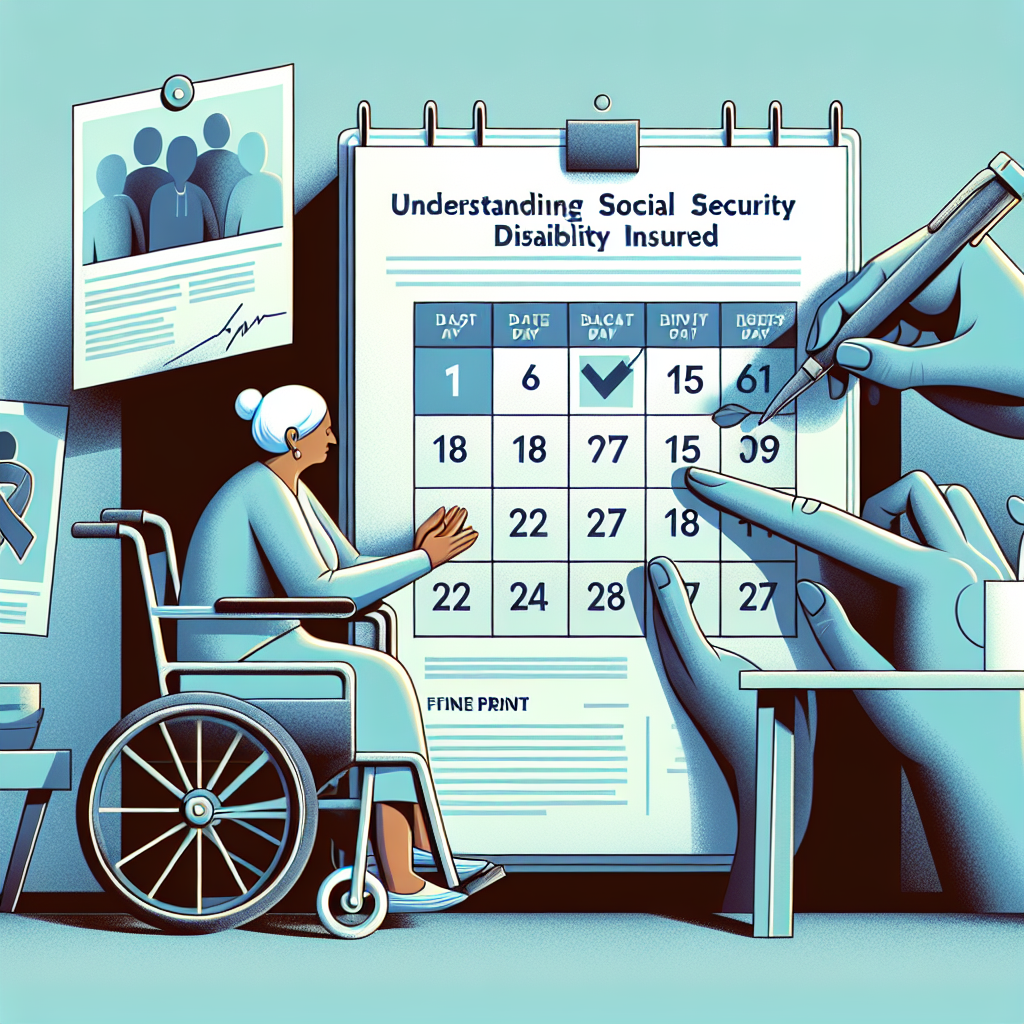Filed under Disability Insurance on
Understanding Supplemental Disability Insurance in California

When considering financial security amidst life's uncertainties, it's essential to explore all the avenues that can provide a safety net. For individuals in California, supplemental disability insurance is one such avenue that can offer a significant benefit. It serves as an added layer of financial protection for those who find themselves unable to work due to illness or injury. In this article, we'll delve into the intricacies of supplemental disability insurance in California, crafting an understanding of its importance, benefits, and how it fits into the broader landscape of financial planning.
What is Supplemental Disability Insurance?
Supplemental disability insurance is an additional insurance policy designed to provide extra financial coverage beyond what standard disability insurance plans offer. While most employers offer some form of disability insurance, these plans typically only replace a portion of your income, often around 40% to 60%. Supplemental plans can help fill this gap, ensuring that you can maintain your lifestyle and meet financial obligations even when you're unable to work.
Why is Supplemental Disability Insurance Important in California?
California is known for its high cost of living, and this elevated financial demand makes supplemental disability insurance particularly crucial for residents. Consider Sarah, a marketing manager living in Los Angeles. After an unexpected car accident, her employer-provided disability insurance only covered 50% of her income. With her mortgage payments and daily expenses still looming, Sarah realized she needed additional coverage to maintain her financial stability. Situations like Sarah's highlight the critical role of supplemental disability insurance in bridging income gaps during challenging times.
Types of Supplemental Disability Insurance
Short-Term Supplemental Disability Insurance
This type of insurance covers temporary disabilities usually not covered by employer plans, providing benefits typically for three to six months. It is ideal for conditions expected to improve over a short period.
Long-Term Supplemental Disability Insurance
Long-term plans offer coverage for more extended disability periods, often until retirement age or when the individual returns to work. Such plans are beneficial for chronic illnesses or serious injuries requiring long-tem recovery.
How Does Supplemental Disability Insurance Work?
In its essence, supplemental disability insurance functions by paying a percentage of your income should you become unable to work due to a covered illness or injury. The specifics on what percentage is covered, the waiting period before benefits commence, and the duration for which benefits are paid vary depending on the specific policy chosen. It's crucial to review and understand these terms when selecting a plan to ensure it meets your needs.
To better visualize this, imagine a freelance graphic designer in San Francisco. This designer suffers a wrist injury that hinders their ability to work. Their supplemental disability insurance kicks in after a 14-day waiting period, providing an additional $2,000 a month, making up a substantial difference that their basic employer disability coverage doesn’t cover.
Eligibility and Enrollment in California
Eligibility for supplemental disability insurance primarily depends on your employment status and medical background. Most insurance providers will require a medical examination and consider pre-existing conditions when determining your eligibility and premium rates. Furthermore, self-employed individuals in California can also purchase supplemental disability insurance to safeguard their income since they might not have access to employer-provided plans.
Tips for Choosing Supplemental Disability Insurance
- Assess Your Needs: Consider your current income, financial responsibilities, and existing disability coverage to identify how much additional coverage you may require.
- Understand Policy Terms: Be clear about terms such as waiting periods, benefit periods, and exclusions to avoid any surprises when making a claim.
- Comparison Shop: Just like any insurance product, prices and coverages can differ among providers, so comparing policies can save you money.
- Think Long Term: Envision potential future changes in your career and health that might require adjustments to your coverage.
Common Mistakes to Avoid
When considering supplemental disability insurance, individuals often make the mistake of underestimating their required coverage. It's essential to factor in not only current but also future financial commitments. Some might overlook the importance of understanding the policy's terms thoroughly, which can lead to unfulfilled expectations when claims arise.
For instance, an entrepreneur who only secured a small supplemental plan might find that their coverage is insufficient to support their business operations and personal expenses during a lengthy recovery period. Avoid situations where financial strain could exacerbate the challenges faced during recovery by opting for comprehensive analysis and planning.
Benefits of Supplemental Disability Insurance
Beyond merely replacing lost income, supplemental disability insurance offers several benefits which enhance financial resilience:
- Peace of Mind: Knowing you have added protection in place can alleviate stress and allow focus on recovery.
- Financial Security: Ensures that savings are not depleted during periods of disability, preserving funds for future needs.
- Flexibility: Many plans are customizable, allowing policyholders to choose coverage that fits their unique situation.
FAQs on Supplemental Disability Insurance in California
1. How much does supplemental disability insurance cost in California?
The cost varies based on several factors, including age, occupation, the amount of coverage, and health status. On average, premiums can range from 1% to 3% of your annual salary.
2. Can I purchase supplemental disability insurance independently if my employer doesn’t offer it?
Yes, individuals can purchase supplemental disability insurance independently through various providers. This option is especially important for self-employed individuals or those with limited employer coverage.
3. Will benefits from supplemental disability insurance be taxable?
Benefits are generally tax-free if you pay for the premiums with after-tax dollars. However, consult with a tax professional to understand your specific situation fully.
4. What is the waiting period for supplemental disability insurance?
The waiting period is the time between the onset of the disability and when benefits begin, typically ranging from 14 to 120 days, depending on the policy.
5. Does supplemental disability insurance cover mental health-related disabilities?
This depends on the policy. Some plans do cover mental health conditions, but it's crucial to check for any specific exclusions or limitations related to mental health in your policy.
Understanding supplemental disability insurance is integral to ensuring comprehensive financial protection. Residents of California, with their unique economic pressures, stand to benefit tremendously from such coverage. By evaluating personal needs, exploring various plans, and never hesitating to seek professional advice, you can attain the peace of mind that comes from knowing you are adequately protected against unforeseen circumstances.





